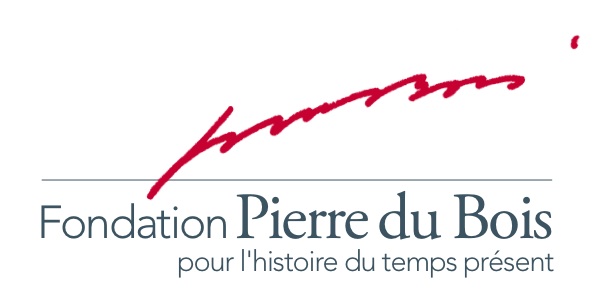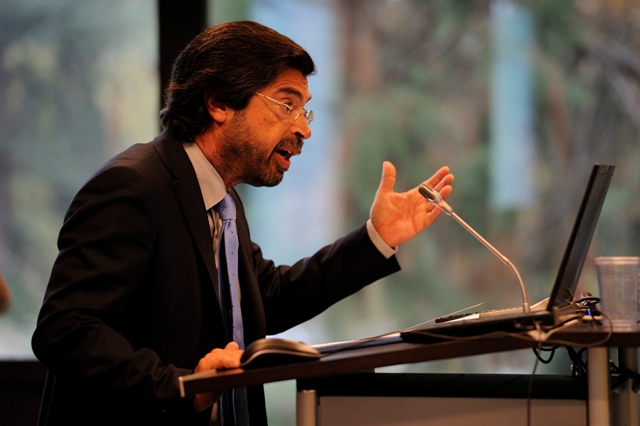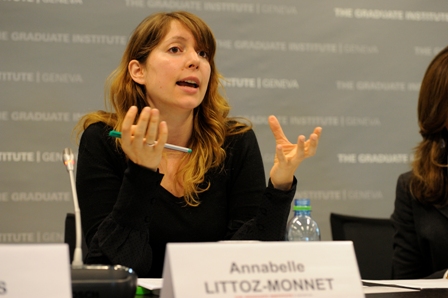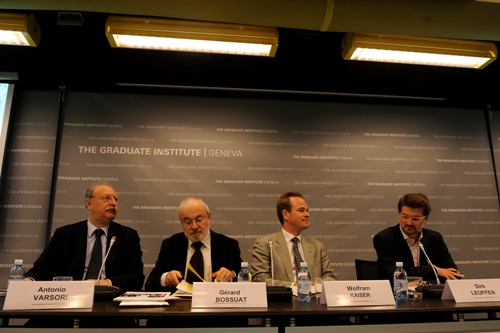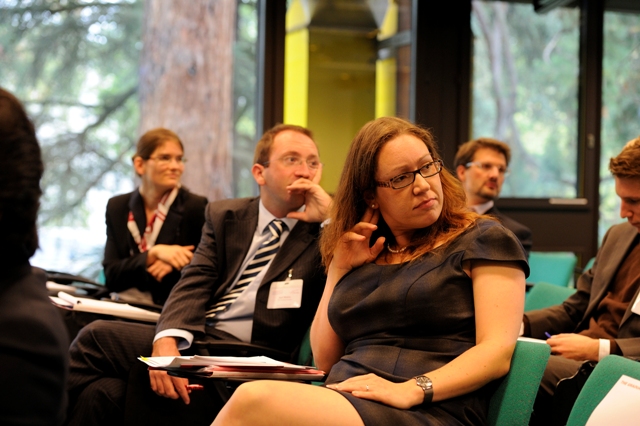Europe Twenty Years after the End of the Cold War: The New Europe, New Europes?
14 – 15 October 2010
The Conference on “Europe Twenty Years after the End of the Cold War: The New Europe, New Europes?” took place at the Graduate Institute of International and Development Studies in Geneva on 14 and 15 October. It was coorganised by the Graduate Institute and the Fondation Pierre du Bois and aimed at providing a framework for reflection on developments and realignments in Europe after the end of the Cold War and the Eastern enlargement of the European Union.
The conference was a great success. It was convened by Prof Bruno Arcidiacono, Dr Brigitte Leucht, Dr Katrin Milzow, Axel Marion, with valuable assistance being provided by Pierre-Etienne Bourneuf.
Find the programme of the conference here.
Find the summary below.
Europe Twenty Years after the End of the Cold War: The New Europe, New Europes?
The second conference by the Pierre du Bois Foundation and the Graduate Institute of International and Development Studies provided a forum for reflecting on various developments and realignments in Europe caused by the end of the Cold War in Europe and the subsequent Eastern and South- eastern enlargement of the European Union. Historians and social scientists from universities and institutions in Switzerland, France, the Netherlands, the UK, Poland, Hungary and the US convened in Geneva to take part in this intellectual enterprise.
From the outset, the conveners of the conference formulated a simultaneously wide and ambitious agenda for addressing the transformations in Europe following from the fall of the Iron Curtain. Rather than focus on one or another specific aspect related to this transformation process, conference participants were invited to consider questions of change and continuity by contextualizing the end of the Cold War and the 2004/07 enlargement of the European Union within the long-term development of European integration up to the present; and by contextualizing these developments within broader changes that have occurred in international politics since the early 1990s.
Conference participants approached the impact of the changes of the end of the Cold War and enlargement from a number of different theoretical and methodological angles. Some scholars chose to combine more traditional historical approaches with analyses of decision-making emanating from the political sciences or discursive approaches.
Firstly, Eastern enlargement and the internal functioning of the European Union were discussed through exploring the institutions, the role of state/non-state actors and public opinion. The contributions highlighted an arguably surprising degree of continuity in decision-making processes within the European Union after Eastern enlargement (Leuffen) and the role played by non-state actors in facilitating the integration of new member states – a continuity going back the Southern enlargements of the 1980s (Kaiser). Other papers developed new perspectives on German unification based on new archival sources (Varsori); called for more comprehensive and differentiated research on Euro-scepticism – a phenomenon which appears to have become a part of structural discourses of Europe and an increasingly acceptable way of debating Europe (Poggiolini); reflected on EU security governance (Gruszczak); and finally, discussed the role of EU cultural policy in attempting to create a broader European public sphere (Littoz-Monnet).
Secondly, contributions under the heading of European defence and external relations discussed a wide range of issues including the debate about the building of a “true” European identity and different initiatives in these areas (Bossuat; Grin). The papers highlighted and agreed on the severe lack of the EU’s military capability but developed different positions as to how well (or ill) equipped Europe really was to guarantee its own security. It was lamented that European leaders would too willing rely on the US military shield and leave more assertive positions on Europe’s geopolitical position and power projection capabilities to the realm of discourses (Germond). The question of what would be necessary to realize a more fully fledged European defence was raised and a number of explanatory factors including the exploding military costs and decline in US power was mobilized. Evolving conceptions of “European actorness” were analysed through the lens of consecutive enlargements from the 1980s to 2004, as perceptions of Europe as a promoter of democracy and human rights combined with Europe as a trade power and a regional actor (Leucht). Further, the role and potential influence of the new member states on decision-making on foreign
and security policy was addressed (Neuman). One contribution specifically advocated the analysis of the GATT during the Cold War period to enhance our understanding of potential links between Europeans East and West, but also as an impediment to US support for European construction (Rücker).
Papers under the heading of the European political space beyond the European Union, thirdly, addressed the transformations of the past twenty years focussing on Yugoslavia (Nuti); more broadly, South East Europe (Stoicescu), Moldova (Williams), Russia (Zubok); and Turkey (Yilmaz; Kubicek). The transatlantic dimension, which provided a crucial underlying theme for the papers addressing issues relating to defence and external relations, proved equally important in the papers in this session. The discussion of the collapse of Yugoslavia, the overview of the development of Russian attitudes vis-à-vis and ideas of Europe and the development of the question of Turkish association and membership over time necessitated references to NATO and American politics. The two papers dealing with Turkey provided for a much-needed corrective to the EU-generated discourse on membership by focussing on Turkish debates and perceptions. Participants also discussed the triumphalism that prevailed in the West following the end of the Cold War and both the notion and reality of state failure – perceptions and developments that are likely to shape the future of Europe.
The last section featured papers tackling the theme of visions of Europe. Participants developed a variety of approaches to explore such visions including the voices of intellectuals (van den Eeden); those of Communist parties (Robin Hivert); and articulations of spatial constructions of Europe (Marion, Fulop). One paper provided a discourse analysis of solidarity as expressed in official policy papers and newspapers (Milzow). Jointly the papers gave rise to questions of Europe’s borders and the essence of Europe and its identities and in many ways continued themes discussed in the previous panels.
In some concluding remarks, G. Grin stressed three dimensions in EU developments that will have to be scrutinized in the coming years: the consequences of the creation of the European External Action Service; EU budgets; and the enlargements of the Union and its uncertain future boundaries. The creation of a true political union will be very difficult to achieve.
In sum, the conference highlighted the difficulties in asserting boundaries across time and space. Rather than provide conclusive answers to questions about Europe’s future, contributions have stressed that historical turning points, identities and spatial conceptualizations are subject to constant renegotiation. The contributions provide a broad range of perspectives on the eastern enlargement of the EU, its place in the history of European construction and its potential repercussions and raise many questions fur further analysis. In this sense they may be seen as a first agenda set by contemporary historians for future accounts and narratives, which will be explored further as archival sources on more recent periods become available.
The conference resulted in following publication.
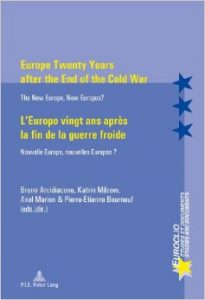
Europe Twenty Years after the End of the Cold War: The New Europe, New Europes?
Edited by Bruno Arcidiacono, Katrin Milzow, Axel Marion, and Pierre-Etienne Bourneuf
Brussels: Peter Lang, 2012


